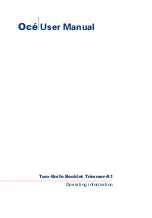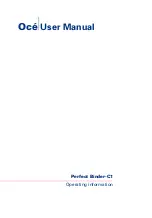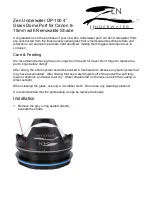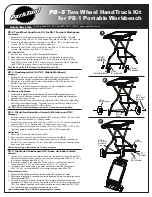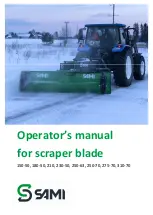
Force Sensor
Model No. CI-6537
10
®
Tension
What is the tension in the string in the previous suggested experiment?
Arrange the Force Sensor and cart on the track as in the previous
suggested experiment. Set up a pulley, string, and hanging mass so that
the cart/Force Sensor will be pulled by the string attached to the
hanging mass. First, hold the cart at rest so the tension in the string is
“mg” (the hanging mass times the acceleration due to gravity). Then,
let go of the cart so it accelerates toward the pulley. Use the DataStudio
program to measure the amount of force in the string. The tension
should be constant, but less than “mg.”
Newton’s Second Law: Friction
Make observations when a force is applied to the cart/force sensor and
compare its acceleration when no friction is present to the acceleration
when friction is added. You will need to add the Friction Cart
Accessory to the Dynamics Cart. Arrange the CI-6742 Motion Sensor,
CI-6537 Force Sensor, and “friction” cart on the track as in the
previous suggested experiment. Set up a pulley, string, and hanging
mass so that the cart/force sensor will be pulled by the string attached
to the hanging mass. Adjust the Friction Cart Accessory so the friction
pad is not in contact with the track. Accelerate the cart with a 50 gram
mass. Use the Motion Sensor to measure the velocity and acceleration
of the cart as it is pulled by the string. Use the computer program to
compare the measured force to the measured velocity and acceleration.
Adjust the friction pad on the bottom of the cart until it is rubbing
against the track just enough to cause the cart to move with a constant
velocity as the 50 gram mass falls. Use the Motion Sensor and the
computer program to analyze the force, velocity, and acceleration.
Finally, raise the friction pad so it rubs the track slightly less than
before and repeat the measurements.
Force Sensor
Cart
Pulley
Mass
Figure 7: Setup for Tension Experiment



















